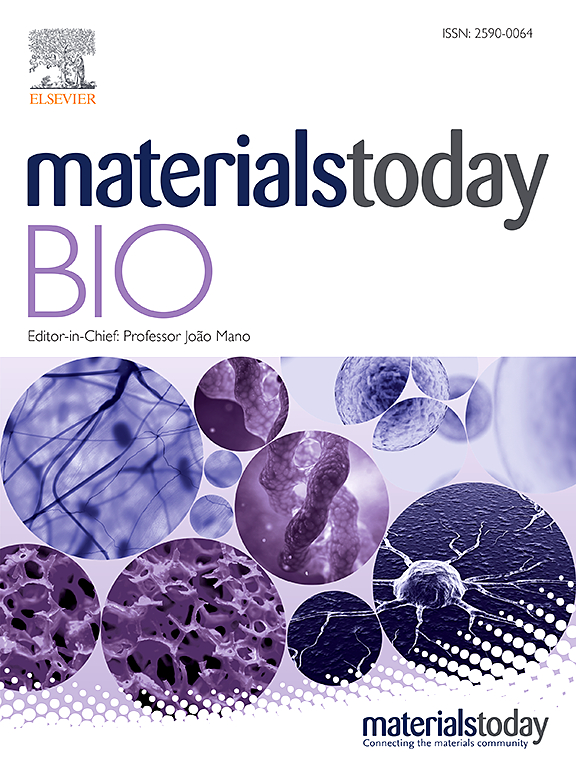Microenvironment-sensitive hydrogels as promising drug delivery systems for co-encapsulating microbial homeostasis probiotics and anti-inflammatory drugs to treat periodontitis
IF 8.7
1区 医学
Q1 ENGINEERING, BIOMEDICAL
引用次数: 0
Abstract
Developing and utilizing effective local antimicrobial agents can help treat periodontitis while minimizing the risks associated with systemic antibiotic use. Recent studies have shown that the mucosal adhesion properties of hydrogels can play a potential role in the treatment of periodontitis. The hydrogel can improve the contact and retention time of drugs in the periodontal pocket. Through the adhesion of mucosa, it interacts with the mucin coating surface of epithelium and teeth to form a specific interface force. The hydrogel exhibits strong mucosal adhesion (adhesion strength: 5–6 N/cm2) and prolonged retention in periodontal pockets (≥6 h), enabling sustained drug release through dynamic sol-gel transitions triggered by pH and reactive oxygen species (ROS). This design overcomes the limitations of poor mechanical stability in conventional formulations. The dynamic balance of oral microbiota plays an important role in maintaining oral health. Probiotics, by colonizing the oral cavity, transform the infected site from an environment rich in inflammatory cytokines to a more benign environment, inhibit harmful pathogenic microorganisms, and contribute to overall health. Microenvironment sensitive hydrogels can perform dynamic sol gel transformation in situ, and can accurately control drug release when exposed to various stimuli (such as temperature change, light, pH change, reactive oxygen species, etc.). Oral probiotics and anti-inflammatory drugs are encapsulated in hydrogels to inhibit the proliferation and adhesion of oral pathogens by planting in the mouth and producing metabolites, effectively preventing and treating oral diseases.

求助全文
约1分钟内获得全文
求助全文
来源期刊

Materials Today Bio
Multiple-
CiteScore
8.30
自引率
4.90%
发文量
303
审稿时长
30 days
期刊介绍:
Materials Today Bio is a multidisciplinary journal that specializes in the intersection between biology and materials science, chemistry, physics, engineering, and medicine. It covers various aspects such as the design and assembly of new structures, their interaction with biological systems, functionalization, bioimaging, therapies, and diagnostics in healthcare. The journal aims to showcase the most significant advancements and discoveries in this field. As part of the Materials Today family, Materials Today Bio provides rigorous peer review, quick decision-making, and high visibility for authors. It is indexed in Scopus, PubMed Central, Emerging Sources, Citation Index (ESCI), and Directory of Open Access Journals (DOAJ).
 求助内容:
求助内容: 应助结果提醒方式:
应助结果提醒方式:


